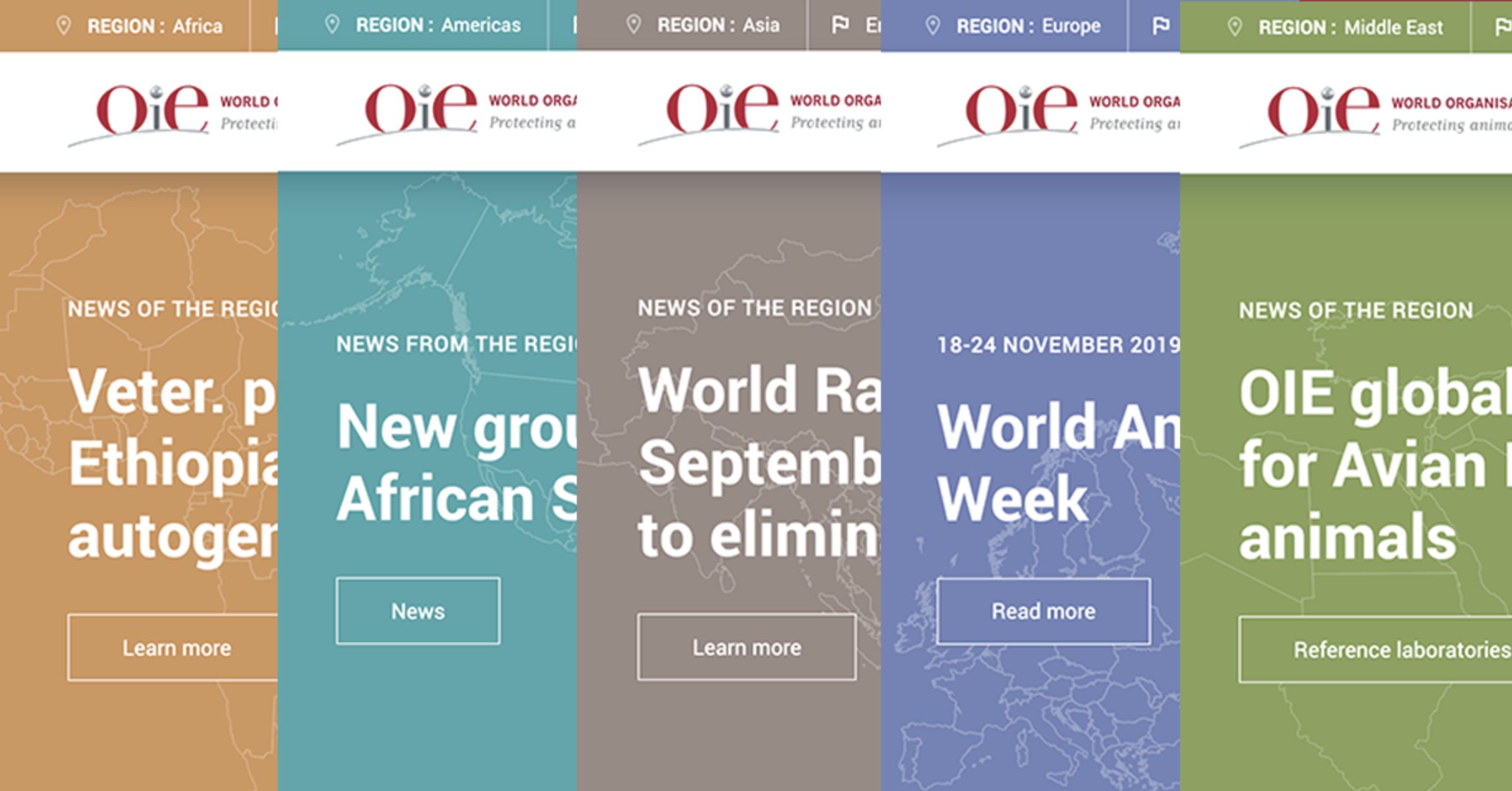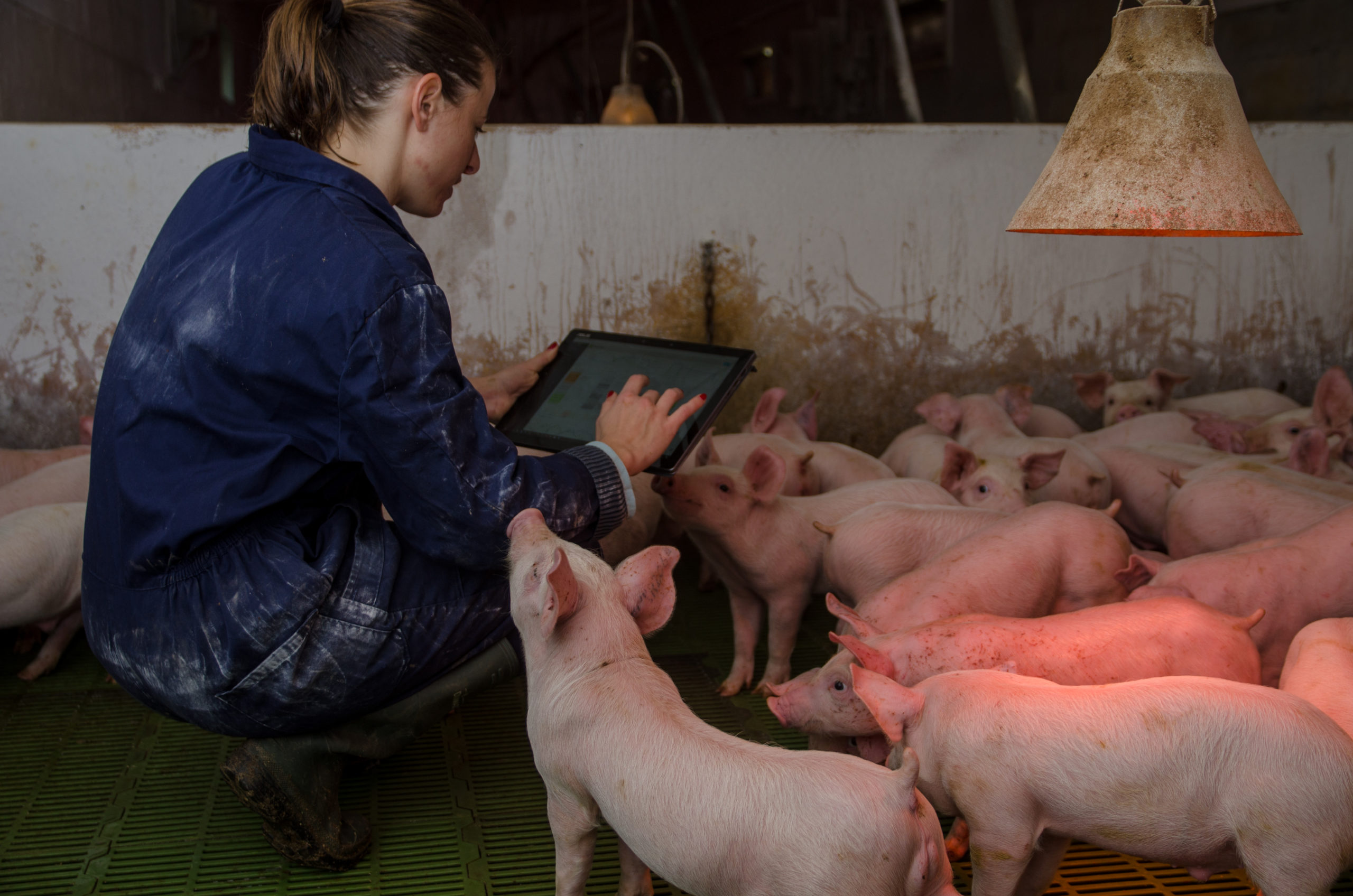OUR ACTION
The OIE digital
transformation
In coming years, the OIE intends to engage in a digital transformation particularly for the management and analysis of animal health data. Its objective: to maximise the potential of the valuable data that the OIE collects, analyses and disseminates.
Having access to a large amount of quality data is an integral part of digitalising the Organisation, whether this involves its services, its processes or its tools.
A renewed web presence in 2019

The new OIE regional websites went live in 2019.
In 2019, the OIE published new websites for its five regions: Africa, the Americas, Asia and the Pacific, Europe and Middle-East. Modern, optimised, regularly updated and loaded with new features, these sites offer easy access to regional animal health information and enable the user to learn more about the OIE projects taking place in each region. After the success of these online launches, the OIE is continuing its digital modernisation by renovating its official site: initiated in 2019, this new project should be completed by late 2020.
Global governance of digital data in animal health
Through a strong governance framework, every effort will be made to provide stakeholders with access to animal health information in accordance with data protection and sensitivity requirements. This governance will also ensure the proper use of data, particularly their interoperability with data from our partners’ platforms. A key step in being able to jointly analyse and disseminate a host of information from different sectors.

Digital transformation will provide unprecedented opportunities for Veterinary Services to access higher-quality information.
Data management to assist decision-making
Prior to the launch of the new OIE−WAHIS platform, the OIE organised an international conference on Big Data in late 2019, in Cagliari, Sardinia. The experts in attendance shared their experiences and discussed the transformation of complex data into relevant information to aid decision-making. These aggregated data open up new perspectives for improving disease monitoring. They will underpin a “One Health” approach to action. In particular, Big Data enable a better assessment of health risks, in an environment where climate change and epidemiological developments pose new threats to animal health.
